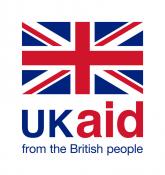
African Journals Online (AJOL)
The African Journals Online (AJOL) programme was initiated by INASP in order to raise the visibility of African journals and create a greater awareness of research carried out in Africa.
Following a two-year pilot period, the African Journals Online (AJOL) platform was launched in August 2000. AJOL initially featured 50 English-language, African-published journals in agricultural sciences, science and technology, health and social sciences. Journals published on AJOL became indexed through search engines dedicated to research, making this work readily available to a global audience, and giving the journals greater visibility among the worldwide research community.
AJOL was handed over to African management in 2005, and currently operates as an independent non-profit organization based in South Africa, today hosting over 500 African journals and providing training and support to journal editors from across the continent. It also set the pattern for the creation of seven further country- or region-specific Journals Online platforms under the Programme for the Enhancement of Research Information (PERI) and Strengthening Research and Knowledge Systems (SRKS) programmes.
In 2017, INASP and AJOL co-launched Journal Publishing Practices and Standards (JPPS) – a unique framework for providing accreditation and support for journals in the Global South hosted on the Journals Online platforms.
Achievements
Today, AJOL is acknowledged as providing critically important service to higher education and research on the continent.
- As of 2017, AJOL had grown to host 520 peer-reviewed journals, publishing from 32 African countries, and the platform includes over 127,000 full-text articles, of which nearly 60% are Open Access. List of participating journals
- In 2015 there were over half a million regular users of the AJOL website from Africa alone.
- The organization has also trained hundreds of journal managers in online publishing and publishing best practices, and provides various other free resources to journals, librarians, researchers and authors.
Read this case study about AJOL.



